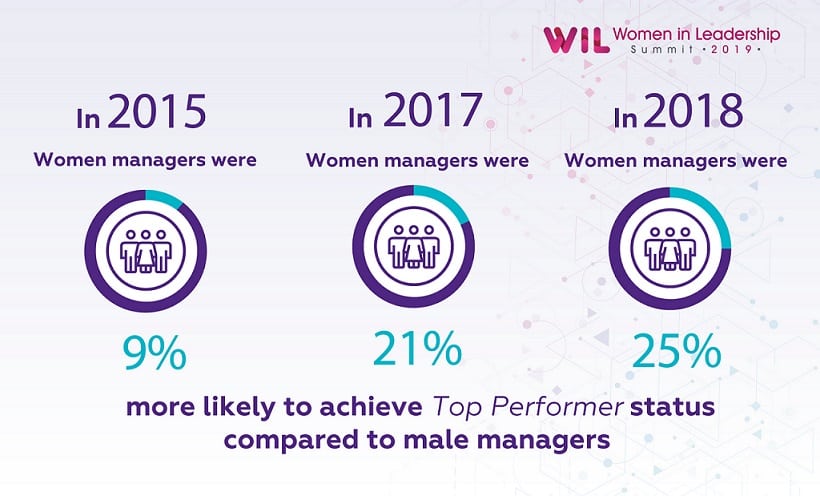Free knowledge to monitor the world of events. Have a look at our must read Blogs on Pharma, Finance, HR, Health and Cross Industry.
Challenges Women Leaders Face in Professional World
2019-08-01
“A woman with a voice is by definition a strong woman. But the search to find that voice can be remarkably difficult. This “voice” is your best tool in the boardroom.”
Melinda Gates, Co-founder of Bill & Melinda Gates Foundation

Today, more than ever, the number of women in leadership positions is rising. This slow but steady rise in statistics confirms that women are reliable, responsible and strong leaders. Still, there is plenty of space for improvement in terms of diversity of genders in the boardrooms across the world.
Even though all leadership positions carry a certain amount of challenges with them, seems like there are some challenges reserved for women only, especially women in leadership positions. Challenges women face differ depending on the culture and work environment, but some are common for women worldwide.
“I feel that one of the key challenges women face is finding the optimal balance between looking after family and looking after work,” says Vinita Ramtri. Vinita is an author, Head of Controls Automation in Barclays, UK and a speaker on the upcoming Women in Leadership Summit 2019.
Indeed, traditional gender roles have progressed, and most developed countries give men the right to paternity leaves. Men, more often than ever, use the paternity leave as they decide to take on an active role in parenting. But the biological and traditional reasons still put a bigger part of this responsibility on women.
“I have encountered many women who feel that they almost have to choose between having a child and getting that promotion. I am a single mother and grateful to be working for a firm such as Barclays, where we have a suite of family-friendly initiatives and tremendous flexibility. The supportive culture helps me maintain a great life balance while progressing my career,” says Vinita.
In a dynamic, professional world, being off work for a few months is not a way to get ahead. Many ambitious women feel this pressure of “staying in the wheel”. As a result of this pressure, a lot of women expressly return to work after having a child.
“After both my children, I went back to work after 7 weeks, but I had great help and support from my family,” admits Vinita.
But motherhood is not the only challenge women face. A report from the data company Visier finds that women are more likely than men to be considered “top performers” by their companies.
In 2017, women were 21% more likely to achieve “top performer” status than men, a rise of 12% compared to 2015. In 2018, women managers were 25% more likely than male managers to be rated as “top performer”.

And yet, women under 40 are still less likely than men to receive a promotion.
This paradox happens because of so-called “soft reasons”. Women are less likely to apply for a promotion if they are not completely certain they are fully qualified. Men ask for promotion more often and believe they deserve it even if they are not fully qualified. An obvious solution would be to instruct women to learn from their male colleagues and be more assertive, right? That’s where it gets interesting.
“Women generally don’t put themselves forward as much as they could. This is because they know that they are expected to be less assertive compared to men. Often assertive women are perceived as aggressive,” says Vinita.
Apparently, assertiveness is not perceived as a very feminine characteristic. Women who negotiate, are more likely to get feedback that they are “intimidating,” “too aggressive” or “bossy”, than their male peers.
Assigning character traits to genders is a burning topic in modern society today. Fighting these perceptions is hard work that will take time to show the result.
So, in the meantime, smart women use these notions for their own advantage.
“I always try to use my skills to add the most value in a given situation regardless of how they are labeled. E.g. when I am facilitating workshops or speaking at a conference, I find that I use the more nurturing traits associated with women to bring people together and take them on the journey. Every experience helps. My maternal instincts have made me naturally more patient and encouraging,” says Vinita.
References:
Visier Insights Report Gender Equity – https://www.visier.com/wp-content/uploads/2016/06/Visier-Insights-Report-Gender-Equity.pdf?app=smooth&
Photo: Unsplash.com
Get a feel for our events

Process Validation for Biotechnological Products MasterClass - US edition
06-09 May, 2024
Understand how to qualify scale-down models
learn more >>
Fundamentals of Pharmacokinetics MasterClass - EU edition
07-10 May, 2024
Pharmacokinetics (PK) play a key role in drug development
learn more >>
Advanced Stability Testing in Pharmaceuticals MasterClass - US edition
07-10 May, 2024
Increase the likelihood of studies receiving regulatory approval
learn more >>












